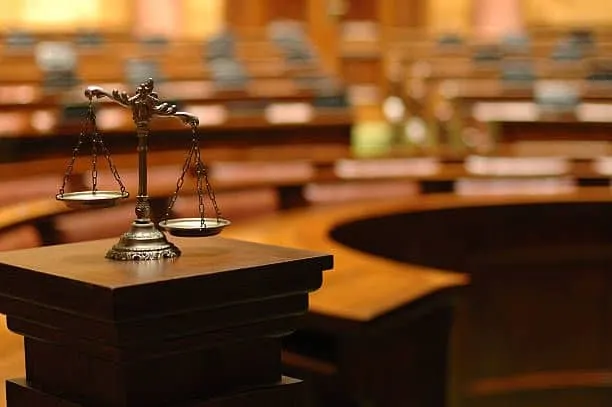This section is meant as a general overview of the different court appearances as a felony progresses through court. It is not meant to cover the law which applies at each stage, or all of the practical or tactical considerations, which will vary from case to case. Felonies are those crimes punishable by a state prison sentence. All felonies begin in county, or limited jurisdiction court.
Advisement is your first appearance in court. There, you are advised of the specific charges against you, and your Constitutional and statutory rights. At that time either a preliminary hearing or a dispositional hearing is set to speak with the district attorney about a potential plea bargain. Bail may be set, raised or lowered. Further court dates are also set, and your attorney will make arrangements to get the discovery, or police reports before your next appearance. The next appearance is either a pretrial, or settlement conference, (dispositional hearing) or a preliminary hearing. If no agreement is reached and you have a right to a preliminary hearing, the hearing will be conducted. The preliminary hearing is a short contested hearing, where the prosecutor presents evidence to a Judge alone (no jury). Hearsay is admissible at that hearing.
The Judge is not deciding whether the defendant is guilty beyond a reasonable doubt, but only whether there is probable cause to believe that a felony was committed, and that the charged defendant is among those responsible. If the Judge finds probable cause, the case is “bound over” to district court for arraignment.
Arraignment in district court is virtually identical to the initial appearance. It is at the arraignment that you enter your plea of “Not Guilty” if an agreement cannot be reached with the prosecution.
Motions are frequently run between the post-preliminary hearing arraignment and trial. These commonly include motions to suppress illegally seized evidence, or for lack of speedy trial or one of many other motions that may prove to be helpful to your case.
Misdemeanors are those crimes punishable with sentences to county jail. They are heard entirely in municipal or limited jurisdiction court (county court) and include only one arraignment, one pretrial, motions and trial. Bail is usually set at the time the defendant is arrested. At the arraignment the Judge will usually hear arguments and then raise or lower the bail accordingly. The issue of bail amount may be addressed at subsequent hearings. However, the amount may only be moved for “changed circumstances.” Bail may be posted in cash, by pledging real property, or through a bail bondsman.
Trial can be to a jury, or to a Judge alone, commonly referred to as a “bench trial.” Both sides are allowed to present evidence, and a defendant may not be convicted until his guilt has been proven beyond a reasonable doubt. Misdemeanors are those crimes punishable with sentences to county jail. They are heard entirely in municipal or limited jurisdiction court (county court) and include only one arraignment, one pretrial, motions and trial. Bail is usually set at the time the defendant is arrested. At the arraignment the Judge will usually hear arguments and then raise or lower the bail accordingly. The issue of bail amount may be addressed at subsequent hearings. However, the amount may only be moved for “changed circumstances.” Bail may be posted in cash, by pledging real property, or through a bail bondsman.
Our attorneys are experienced in all of the stages of the criminal law process including trials. Call us today for a Free Consultation at (303) 415-2583.


